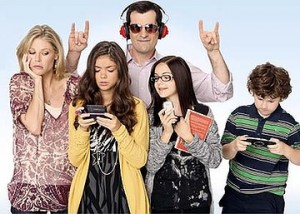Podcast: Play in new window | Download
Friends,
Let’s start quickly with TV, then to school, and on to work.

Tell me why these were GREAT shows? M.A.S.H., All in the Family, Happy Days, Mary Tyler Moore. If I’m dating myself terribly, throw in The Office, How I Met Your Mother, and Modern Family. Why so good? What do they have in common?
1. Talent is of course huge.
2. The scripts are tremendous. Let’s pause on that one.
Scripts also determine success in work, politics, and business. For instance, leaders metaphorically write great scripts. People want to be “cast in their shows” because there is clarity, purpose, meaning, and success in what they do. Do you have a story line this week in your world? Write something compelling that your kids, your staff (or your boss) want to be cast in your show. Show them drama and energy and results in your theater of operation. And son Jack points out: they’re all funny shows. Who doesn’t want to have a little fun?!
3. I want to highlight one more common ingredient in those shows. Here’s a clue: The Jefferson’s and Maude; Phyllis and Rhoda; Trapper John, MD.; Laverne and Shirley, and Mork and Mindy . . .
The casts! Yes, the “leads” like great “leaders” rocked it. Carroll O’Connor was terrifyingly believable, but Maureen Stapleton’s dimwitted purity matched him step for step and Rob Reiner’s idealistic naivete invited and pained you. When it comes to The Office and Modern Family, my family can’t decide which actor we like best. Each shines. I have to believe that the writers must love writing for characters like Dwight Schrute or Toby Flenderson; or for Phil and Claire Dunphy. Leaders are screenwriters.
So, today I start the semester – the season as it were – at Berkeley with 50 undergrads in the afternoon, then 30 graduate students into the evening. I guess I’ll be the star, the focal point, “the” leader. But if it’s a great show, it will be because I bring 80 other people onto the stage. My plan is to get them to show off their insight and intellect and experience (last semester I had law students from 9 different countries), but also their hearts and hopes and fears. I’ll look for ways to have them upstage me. I can hardly wait to bring them out of the wings, to shine a spotlight on them, to demand their best, and to get them to walk out of my classroom enthused to hit the campus and then the “real world,” excited to . . .
Lead with their best self,
Dan
p.s. What leadership lessons do you take from these great TV shows?

I love using TV subject matter in teaching. Quick thoughts—most of the shows have individuals who lead, even when they are not the obvious leader—sometimes only for a moment. The leaders or those acting as leader know the importance of relationships. Their values are clear to those around them—they live their values. There is honesty and a willingness to speak up, to tackle tough situations. The leaders show compassion—even in the worst of times (war) or toward the most unlikeable people. Good luck with your classes. Sounds wonderful!
Veretta,
Great to hear from you. Boy wouldn’t it be fun to take MASH and Mary Tyler Moore and watch them for everyday leadership activity?
Thanks for weighing in.
D.
One more quick connection – the best shows & movies work because they invite us into our own story. We become hooked and engaged when our story starts to intertwine with what we’re experiencing (note, not merely “watching”) on the screen. As educators and instructors, this too is what we are called to do – to invite our students into their story as it intersects with the subject matter. That’s when they too become engaged with the classroom experience.
Thank you for giving your students that gift Dan!
my interest is on a par equal bassis. I have no interest in ‘going back to school’ if the choice is the socialist sheople indoctrination agenda of U.C-Berzerkley, or watching brain numbing boob tube programming that you’ve referenced.
Two totally different thoughts:
1. The shows connect because we can see ourselves and others around us in them, with the characters’ proclivities taken to their absurd and illogical conclusions — the lesson being not to let our own proclivities take us that far.
2. Laugh at yourself — if you can’t, you’re doomed to isolation and unhappiness.